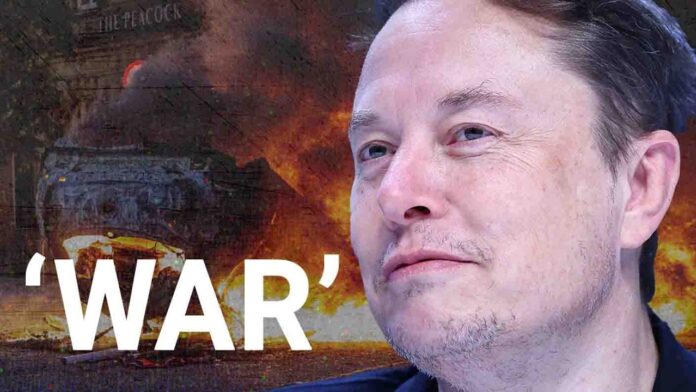Elon Musk’s assertion of an impending civil war in the UK sparks heated exchanges with Prime Minister Sir Keir Starmer, as tensions rise over riots and misinformation
A heated dispute has erupted between Elon Musk and UK Prime Minister Sir Keir Starmer following Musk’s controversial remarks about the ongoing riots in the UK. Musk, the billionaire owner of X, ignited controversy with a provocative statement on his social media platform, suggesting that the UK was on the brink of civil war. His comments came in response to a video showing rioters setting off fireworks at police, which he captioned with a grim prediction of “civil war is inevitable.”
The Prime Minister’s office swiftly condemned Musk’s remarks, dismissing them as unjustifiable and warning that anyone inciting violence online would face legal repercussions. The spokesperson emphasized that the government is committed to combating online disinformation and holding those responsible accountable.
In a counter-response, Musk criticized Sir Keir Starmer’s focus on attacks against Muslim communities, questioning why there was not equal concern for all communities affected by the violence. Starmer had earlier condemned the violence against mosques and asylum seekers, labelling the unrest as “pure violence” rather than legitimate protest.
The exchange has intensified scrutiny of the role social media plays in exacerbating unrest. Technology Secretary Peter Kyle held urgent meetings with representatives from major social media platforms, including TikTok, Meta, Google, and X, to address their responsibilities in curbing the spread of hateful and inciting content. Kyle stressed the need for swift action to manage and remove harmful online material.
The riots, which began in Southport following the arrest of Axel Rudakubana for a horrific knife attack, have escalated with widespread misinformation fueling further unrest. False claims that Rudakubana was a Muslim refugee stoked public anger and led to violent demonstrations. Notably, controversial influencer Andrew Tate amplified these falsehoods, deepening the crisis.
Police have faced significant challenges in managing the violence, with over 400 arrests reported since the riots began. Tensions have been exacerbated by misleading narratives and questions about the police’s handling of the situation. Reform UK leader Nigel Farage has raised doubts about the police’s statements regarding the incident’s motivations.
In response to the escalating violence, the Prime Minister announced increased judicial measures, including extended court hours and a commitment to naming those charged as soon as possible. Starmer also highlighted the deployment of specialized police forces to address the disorder.
The international community has reacted to the situation, with several countries issuing travel warnings for their citizens in the UK. The government has so far resisted calls to deploy the army, maintaining that the police have sufficient resources to manage the crisis.
Analysis:
Political:
The conflict between Elon Musk and Prime Minister Sir Keir Starmer underscores the growing influence of social media figures in shaping political narratives. Musk’s provocative statements challenge government responses and highlight the complexities of addressing public unrest fueled by online disinformation. The situation also illustrates the tension between government efforts to control harmful online content and the freedom of expression on social media platforms.
Social:
Musk’s comments and the ensuing controversy reflect broader societal divisions and the impact of misinformation. The riots and violence, exacerbated by false narratives, reveal how social media can amplify and distort public sentiment, contributing to social unrest. The response to these events highlights the challenges of managing and moderating online discourse while addressing real-world consequences.
Racial:
The riots and misinformation campaign have racial implications, particularly concerning the false portrayal of the attacker as a Muslim refugee. This narrative has fueled anti-immigrant and anti-Muslim sentiments, illustrating how racial and ethnic prejudices can be exacerbated by misleading information and inflammatory rhetoric.
Gender:
The gender dynamics are less pronounced in this context, but the involvement of high-profile male figures like Musk and Farage in the discourse reflects broader patterns of influential individuals shaping public debate. The response from female political leaders and activists could provide a more balanced perspective on the situation, though their voices are less prominent in the current narrative.
Economic:
The economic implications of the riots and the response to online misinformation are significant. The unrest has led to international travel warnings, potentially impacting tourism and local economies. The government’s focus on curbing misinformation and managing the crisis will also have economic ramifications, affecting public trust and investment in social media platforms and law enforcement.
